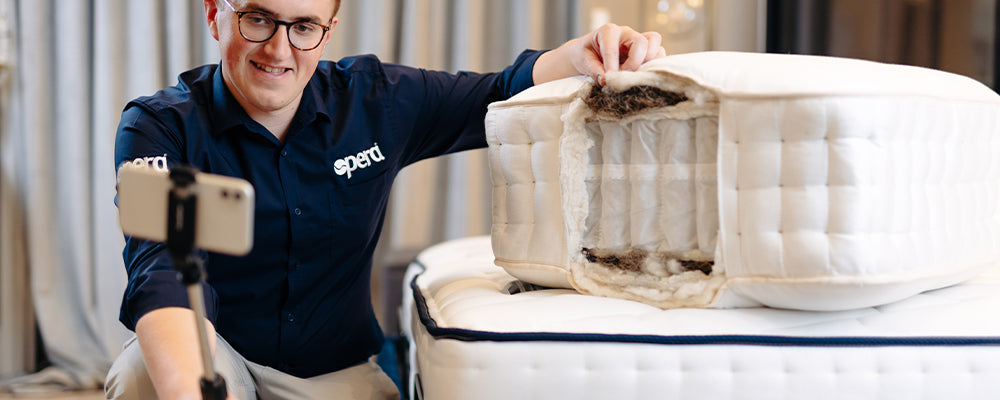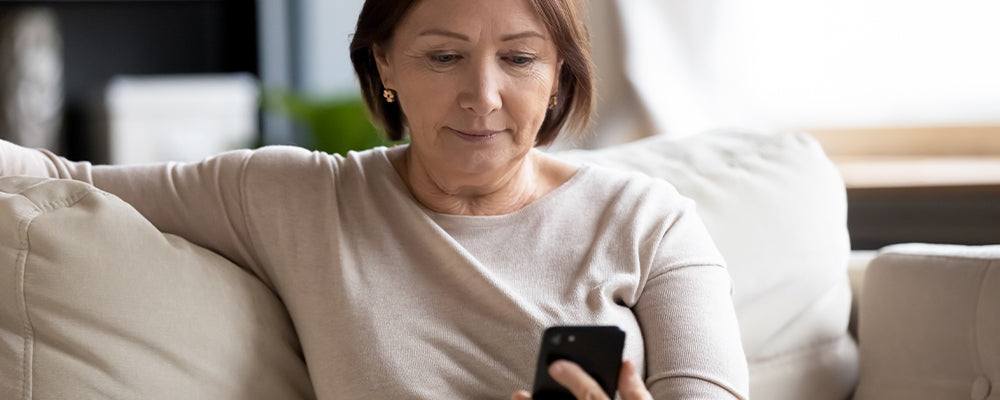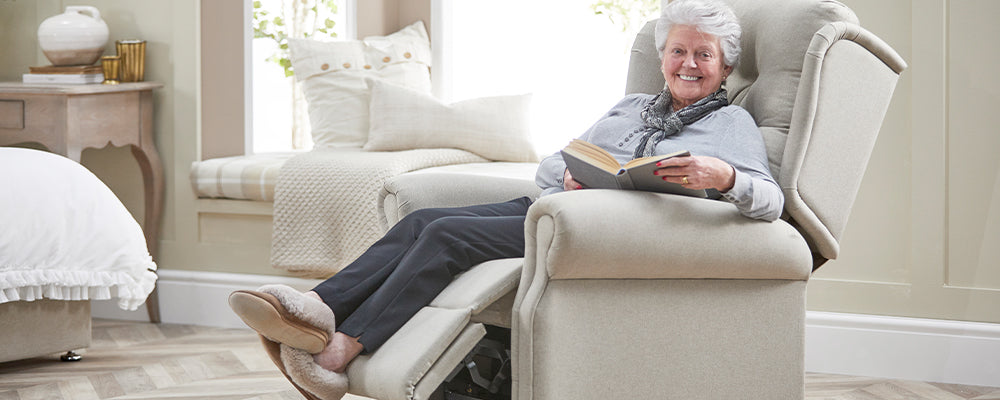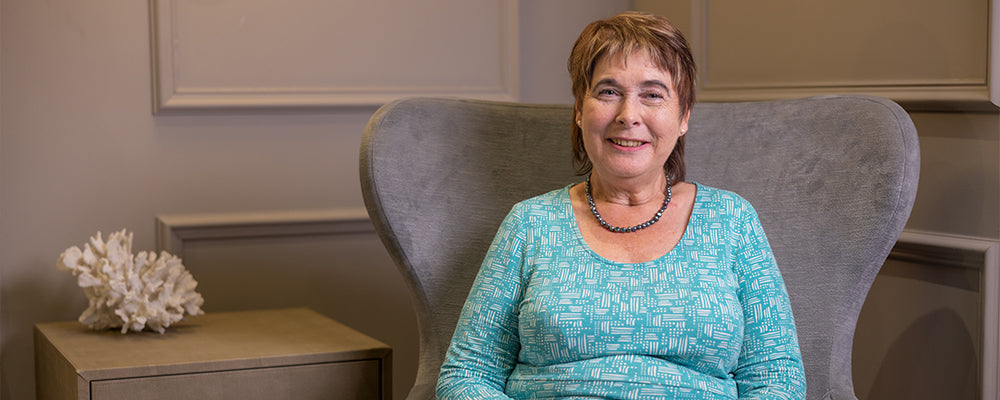As the seasons change and we get less hours of daylight, many individuals find themselves challenged with a subtle yet profound shift in their mood and overall well-being.
This phenomenon, known as Seasonal Affective Disorder (SAD), is referred to as a type of depression that has a seasonal pattern. In this article, we explore SAD further and how it can disrupt our rest patterns and in turn affect our physical and mental health.
Symptoms of SAD
Seasonal affective disorder (SAD) is a medically recognised syndrome that affects a persons’ mental health. It can be diagnosed by a GP and key symptoms include:
- Changes in sleep pattern
- Lethargy
- Sleepiness during the day
- Fatigue
- Difficulty coping with daily activities
- Being less active than normal

Usually, these symptoms must have been experienced in the same season, for at least two consecutive years.
The causes of SAD
Quality sleep is essential to mental and physical well-being. To meet the demands and challenges of everyday life 6-8 hours per night of undisturbed sleep is recommended. But darker mornings, that are often cold and wet, give little incentive for individuals to get up at their usual time, and darker evenings tempt them to retire to bed earlier. However, this change in routine will affect the normal sleep pattern.
Instead of providing the anticipated extra hours of sleep it is more likely to induce extra hours of sleeplessness, and the opportunity to focus on negative thoughts. Anxiety will exacerbate the symptoms and irritability will cause disruption to a persons’ lifestyle.

Why poor sleep affects SAD
To achieve restorative sleep a comfortable supportive bed is essential. So many of my clients, especially those with minor or major health conditions, complain of pain, difficulty sleeping and overall fatigue. I am always amazed to discover they are sleeping in beds that have sagging bases, mattresses that are lumpy and have no postural support, and an assortment of pillows haphazardly arranged in an unsuccessful attempt to provide a degree of comfort. I always explain that maintaining good posture, both awake and asleep, is essential to maintain joint health, prevent joint deformities, reduce pain, and enhance mobility and function.
Continuing to sleep in unsuitable beds and on unsupportive mattresses will simply compound pain discomfort joint stiffness and disturbed sleep. Therefore, the number one priority is to replace the current bed with a new one. This will involve financial outlay, as the new bed will need to be not only comfortable but also provide the required postural support for the user, and so it is a sensible to make a wise investment and purchase a new bed from a specialist bed supplier.
How Opera can help provide a better night’s sleep
Opera beds are an ideal choice if you’re looking to invest in a better night’s sleep. They recognise that maintaining good posture during sleep benefits mental and physical health, so provide a thorough consultation service. They have produced a range of beds, mattresses and pillows that in combination can be tailored to meet individual requirements.

The Opera range includes fully profiling beds and adjustable beds, the mechanisms discretely hidden enabling the beds to be both aesthetic and functional.
Tips for treating SAD
For all those living with this condition ‘self-help’ is necessary.
There are strategies to help in managing the effects of SAD and some of these will involve financial investment. Some examples are listed below:
Establish a Daily Routine
Self -discipline is essential. Whilst accepting you do not have the energy to resume a previously hectic routine, it is vitally important to devise a less stressful one. This could incorporate basic activities of self- care, regular mealtimes, healthy eating, exercise, rest periods leisure, and socialising. Make it achievable by setting easy goals and aim to complete each goal every day.
Meanwhile, timetabling is very helpful in establishing a manageable daily routine. One method is to set this out in diary format listing a twelve- hour day.
- The first entry is the time you should get up, shower dress, and start your day, and the last entry the set time you have chosen to go to bed at night.
- Then enter three mealtimes, inserting between each one a short (timed) rest period.
- Then either morning or afternoon enter the time to take a short walk.
Finally enter a time to socialise. This need not be face- to- face interaction but can be simply sending a text or email to a friend. Remember that the timetable should be regularly reviewed and upgraded as stamina increases. You may also wish to keep a diary. Recording your daily feelings and achievements will help you to monitor your progress and recovery.

Sleep
If your existing bed is uncomfortable consider Investing in a supportive bed – profiling / adjustable if necessary. If you’re considering a new bed, then Opera can help find the best one for your needs.
Posture
Good posture = good health
Ensure you have good postural support both in bed and when seated.

If you do not have a chair that supports you comfortably when seated, then consider investing in a new riser recliner hair.
Light and Lighting
It has been scientifically proven that people living with SAD greatly benefit from exposure to natural daylight so try to spend some time each day outdoors during daylight hours.
Many people living with SAD find Lightboxes and Sunrise alarm clocks are helpful. In general, these are not available on the NHS so need to be purchased privately.
Exercise
Gentle exercise is beneficial to both mind and body. Walking is a great form of exercise. If the prospect of exercising in a gym is overwhelming, take a short daily walk instead.
Psychological therapies
Many people find Psychotherapy and Behaviour modification therapies helpful in the management of SAD. Both are available either face to face or on-line. It may be available on the NHS but depending on wait times you may wish to consider private funding.
Decluttering and Décor
An environment that maximises daylight and artificial light is vitally important. There is a saying: “A well -ordered room equals an ordered mind “.
Simply de-cluttering a room will immediately create additional space, improve air circulation, and help you to feel more energised and positive.

In rooms you use most (e.g bedroom and lounge) make sure that curtains are drawn back fully allowing as much natural daylight as possible to fill the room.
If the room is painted in a dark colour, have it repainted in a soft pastel shade.
Pictures can brighten a space and be a source of stimulation, so hang a favourite picture on the wall opposite your bed. On waking and opening your eyes it will be the first thing you see, making you smile and feel positive about the day ahead.
About Elaine Hollerhead

Elaine Hollerhead (Consultant - Dip Professional Interior Design RCOT Dip HCPC Reg No:OT06914) is an occupational therapist and interior designer who previously worked for the NHS. She is highly experienced in adapting homes and spaces for those with mobility issues and disabilities and her ethos is ‘making functional fabulous’.








